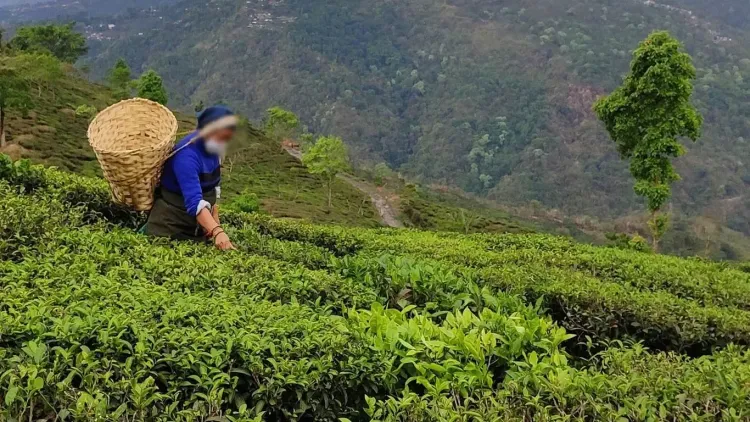Re-export of Inexpensive Tea Damages India's Tea Reputation: TAI

Synopsis
Key Takeaways
- Indian tea is facing reputational harm from cheap re-exports.
- TAI urges action against fraud in tea labeling.
- Improper imports devalue the market for genuine Indian teas.
- Financial stability of tea producers is at risk.
- TAI calls for improved quality control measures.
Guwahati, Jan 30 (NationPress) An association representing tea growers and traders has expressed concerns that the reputation of Indian tea is suffering due to the re-export of inexpensive tea imported from various African and Asian countries.
The Tea Association of India (TAI) noted that a significant amount of duty-free tea imported is being falsely labeled and re-exported as ‘Indian Tea’, breaching national regulations.
According to TAI President Sandeep Singhania, “Most of the teas imported are of inferior quality from regions such as Iran, Vietnam, and Africa. The practice of re-exporting these teas as ‘Indian tea’ tarnishes the image of genuine Indian tea and devalues its market price, adversely affecting legitimate exporters and the overall perception of Indian tea.”
He emphasized that this situation leads to a decline in the price of Indian tea, which in turn jeopardizes the financial viability and wage-paying capacity of the industry.
Singhania warned that if measures are not implemented to eliminate the re-export of imported teas labeled as ‘Indian Tea’, it could lead to severe repercussions for tea prices and the economy, potentially crippling an already struggling sector.
He highlighted that the livelihood of tea producers is severely threatened due to the lack of fair pricing for Indian teas.
In alignment with the Prime Minister’s initiative for ‘Atmanirbhar Bharat’, the Indian tea sector has managed to maintain production and job levels despite facing significant economic challenges over the past decade owing to stagnant prices, Singhania remarked.
TAI has urged the Tea Board of India, which possesses enhanced legislative and financial authority, to take decisive actions to eliminate fraud and ensure that violators are held accountable under the law.
The organization also called for the implementation of a testing model akin to that used in Sri Lanka for all teas imported for re-export and suggested considering a ban on bulk duty-free imports for re-export.
Furthermore, TAI has urged the government to activate and empower the North Indian Tea Council to assist the Tea Board in overseeing the quality of tea imports and exports and to initiate necessary penalties against those who have violated the law by misrepresenting low-quality imported tea as Indian tea.
Assam, contributing approximately 55 percent of India’s tea production, is home to over 1 million tea workers employed in around 850 large estates.
Additionally, there are countless small tea gardens owned by individuals. The tea-growing regions of the Brahmaputra and Barak valleys support a population exceeding 6 million.
Following Assam, Tripura ranks as the second largest tea producer in the northeastern region, generating about 10 million kg of tea each year.









